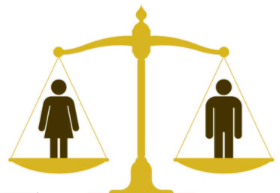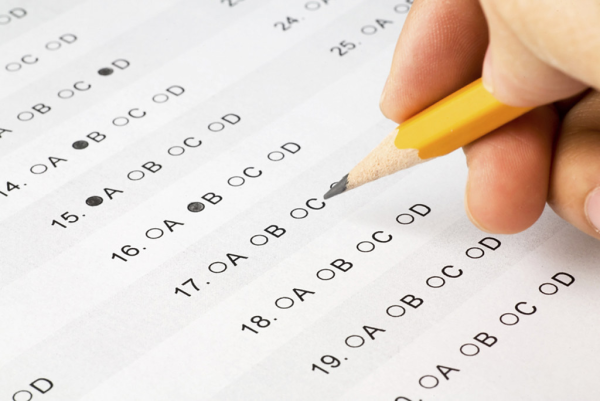Gender double standards are still seen in society today

As far as we’ve come in establishing gender equality today, several unaddressed issues remain in our path to complete gender impartiality. It goes without saying that these injustices apply to all genders and backgrounds, regardless of one’s identity, but at the same time, our largely patriarchal society has yet to resolve many of its misogynistic imbalances.
What is a Double Standard?
A double standard is a rule or principle which is unfairly applied in different ways to different people or groups. In scenarios that are essentially the same, double standards occur when different genders are judged under different lights. Without even realizing it, many of us are influenced by these unethical perspectives, including the victims themselves.
These are just a few examples of some double standards we’ve unconsciously normalized.
Unfair Wages
Today, women are not paid the same wages as men for doing the same jobs. In 1963, although the Equal Pay Act was signed, the United States is still far from balancing this gender pay gap.
According to the US Census Bureau, a woman working a full-time, year-round job will earn 17.7% less than a man in the same position. Not only does this target women, but racial and ethnic groups too.
Stigma vs Praise Around Romantic Partners
A study published in Social Psychology Quarterly found that “greater numbers of sexual partners are positively correlated with boys’ peer acceptance, but negatively correlated with girls’ peer acceptance” among younger generations. Males tend to be rewarded and praised for constant sexual activity, whereas females are stigmatized for these behaviors.
Maiden Last Names
A tradition that dates back to the patriarchal practice of coverture, today, women are still largely expected to give up their last names and adopt their husbands’ upon marriage. A 2017 study in Gender Issues found that women who kept their last names were viewed as ‘less committed wives’ by men of lower education. Whether or not the tradition is carried out in the same mindset as it was long ago, it still suggests a certain suppressed standard to a woman’s role in marriage.
Parenting Stereotypes
While women are expected to be caregivers, and as a result face both high expectations and heavy criticism, fathers are not treated the same way. A father watching over his children is disproportionately praised for the same effort a mother puts in. Likewise, accompanying this is the assumption that men are ‘less capable’ of parenting the way a mother is expected to.
How we can work to overcome them…
While double standards have become ingrained into cultures as the norm, as we move to progress and better society, recognizing these issues should be the first step. Raising awareness of issues like this and simply pointing out when a comment may be feeding into these stereotypes is the best first step.
For more information…
https://link.springer.com/article/10.1007/s12147-016-9182-5
https://www.weforum.org/agenda/2019/03/surprising-stats-about-gender-inequality/

Hills senior Julia Bang is looking forward to being on the Trailblazer for her final year. She joined the publication her freshman year as a staff writer and edited for the Life & Style and In-Depth sections in her sophomore and junior years, respectively. This year, Bang is excited to create content and manage stories alongside the entire editorial staff.
Fun fact: Bang is a "cafe enthusiast."













































paul • Jan 5, 2023 at 5:41 PM
What is about the double standards for women today. For women a lot of things got made easy. Women get invited to parties just for existing, get into club for free or are allowed to get in the club first. Another thing is think of WNBA, why do we need a separate league for women than the men. A lot of thing needs to be lowered down for women to have a chance to compete. The same is for the Military or Police standards. Another example is that we need to lower the standards in government so that women have a chance to compete.